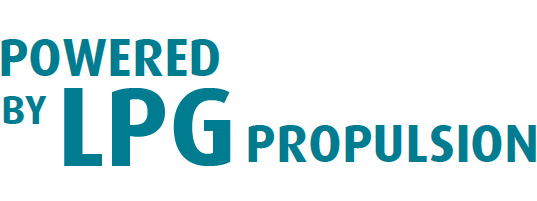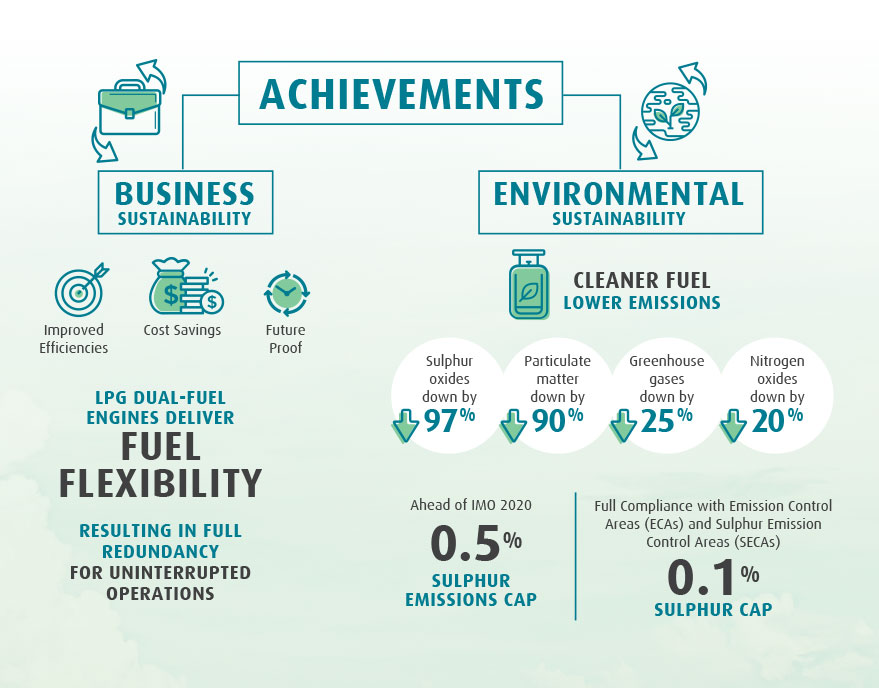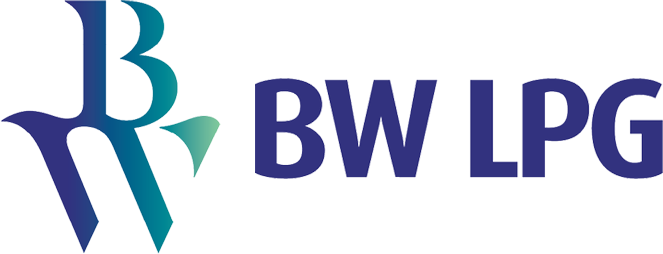BUSINESS HIGHLIGHTS

BW LPG’s conversion to LPG propelled dual-fuel engines represents a lifecycle upgrade and long-term commitment to promoting the use of LPG as a clean marine fuel.
We have committed to retrofit 12 vessels with pioneering propulsion technology, making us the global pioneer in LPG propulsion. Through next generation, high-tech green ships, LPG propulsion embraces a low carbon future and generates positive change for the environment, while positioning us to seize “green wave” business opportunities. At the same time, the move places us ahead of the global 0.5% fuel sulphur content cap instituted by the IMO, which went into effect on 1 January 2020.
Under this world-first initiative, our 2015-built VLGCs BW Gemini, BW Libra, BW Leo, and BW Orion will be retrofitted during their scheduled dry dockings in 2020. Our first LPG propulsion vessel is expected to be retrofitted and delivered by Q2 2020. Retrofitting for the remaining eight vessels is expected to start in 2021.
RELIABLE SUPPLY
LPG can rely on an extensive existing global infrastructure, including more LPG terminals built in the US, to cover increased demand for competitively priced LPG.
INCREASE IN EFFICIENCIES
With LPG as a marine fuel, output efficiencies will rise by around 10% against fuel oil, which will in turn generate notable gains in total voyage fuel economics. This, along with other advantages, secures LPG’s position as a long-term sustainable marine fuel.
SUSTAINABLE SUPPLY CHAIN
The large network of import and export terminals around the world can become LPG bunkering points, with approximately 1,000 available globally. Existing LPG vessels can also be used as supply points.
MORE RELIABLE, FULLY FLEXIBLE AND CLEANER ALTERNATIVE WITH DUAL-FUEL ENGINES
Harnessing LPG propulsion translates into cleaner, more efficient engines that are cheaper to maintain. In addition, the fuel flexibility of dual-fuel engines ensures full redundancy (duplication of critical components of a system with the intention of increasing reliability to improve actual system performance) for uninterrupted operations.
THE PERFECT SOLUTION FOR VLGCs AND OTHER VESSELS
LPG dual-fuel propulsion systems can be installed or retrofitted on a wide range of vessel types. With lower installation costs and cheaper operating and maintenance requirements than LNG equivalents, LPG propulsion systems also offer a shorter payback period with almost identical environmental benefits to LNG fuel.
LOWER PRICE SENSITIVITY, HIGHER COST EFFICIENCY
Cost-wise, LPG is also a better option than compliant fuel oil, with high lifetime savings prospects. By leveraging LPG as a marine fuel, BW LPG benefits from savings due to lower fuel consumption and full dual-fuel flexibility, which guards against price sensitivity to post-2020 fuel price fluctuations, thereby future-proofing the Company.


